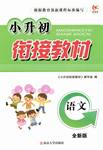题目内容
完形填空
阅读下面短文,从短文后各题所给的四个选项(A、B、C 和 D)中,选出可以填入空白处的最佳选项,并在答题卡上将该项涂黑。
My grandmother was an iron-willed woman, the feared head of the family.
When I was five years old, she invited some friends to her apartment for a party. the guests was a neighborhood big shot who was doing well in business. His wife was of their social status(地位). They had a little girl about my age who was spoiled(被宠坏) and very much to getting her own way.
At one point during the party, I my way to the bathroom and closed the door behind me. A minute or two later, the little girl the bathroom door and grandly walked in. I was still sitting down. “Don't you know that little girls aren't to come into the bathroom when a little boy is using it?” I shouted. My shocked the little girl. Then she
started to cry. She tearfully to her parents and my grandmother. Grandmother was waiting for me when I left the bathroom. I received the longest, scolding. After her scolding was over, she and the party continued.
Twenty minutes later, all that changed. Grandmother walked by the bathroom and noticed a flood of water out from under the door. She the bathroom door and saw that the sink and tub were plugged up and that the were going at full blast (拧到最大). Everyone knew who did it. The guests quickly formed a wall around me, but Grandmother was angry that she almost got to me anyway.
My grandfather took me to the window. He was a kind and gentle man, full of wisdom and patience. He raised his voice to anyone, and he never his wife. He looked at me with much curiosity, angry or upset.
“Tell me,” he asked, “why did you do it?”
‘Well, she yelled at me ,” I said earnestly. “Now she's got something to yell about.”
Grandfather didn't speak right away. He just sat there, looking at me and smiling. “Eric,” he said at last, “you are my revenge(报仇).”
1.A.Between B.Among C.Around D.Beside
2.A.aware B.scared C.convinced D.proud
3.A.accustomed B.exposed C.devoted D.connected
4.A.made B.found C.pushed D.blocked
5.A.closed B.opened C.beat D.tapped
6.A.expected B.asked C.supposed D.told
7.A.happiness B.depression C.embarrassment D.anger
8.A.complained B.apologized C.replied D.referred
9.A.biggest B.sharpest C.finest D.funniest
10.A.rang me up B.kept me up C.left me alone D.made fun of me
11.A.moving B.rolling C.floating D.streaming
12.A.pushed open B.pulled down C.shut up D.knocked at
13.A.pipes B.taps C.tubes D.switches
14.A.productive B.thick C.protective D.rough
15.A.so B.too C.as D.very
16.A.in panic B.by the hand C.by surprise D.with anxiety
17.A.often B.sometimes C.always D.rarely
18.A.contradicted B.comforted C.abandoned D.urged
19.A.for sure B.not only C.not at all D.more than
20.A.for something B.for nothing C.without doubt D.with sympathy
 学而优衔接教材南京大学出版社系列答案
学而优衔接教材南京大学出版社系列答案 小学课堂作业系列答案
小学课堂作业系列答案
